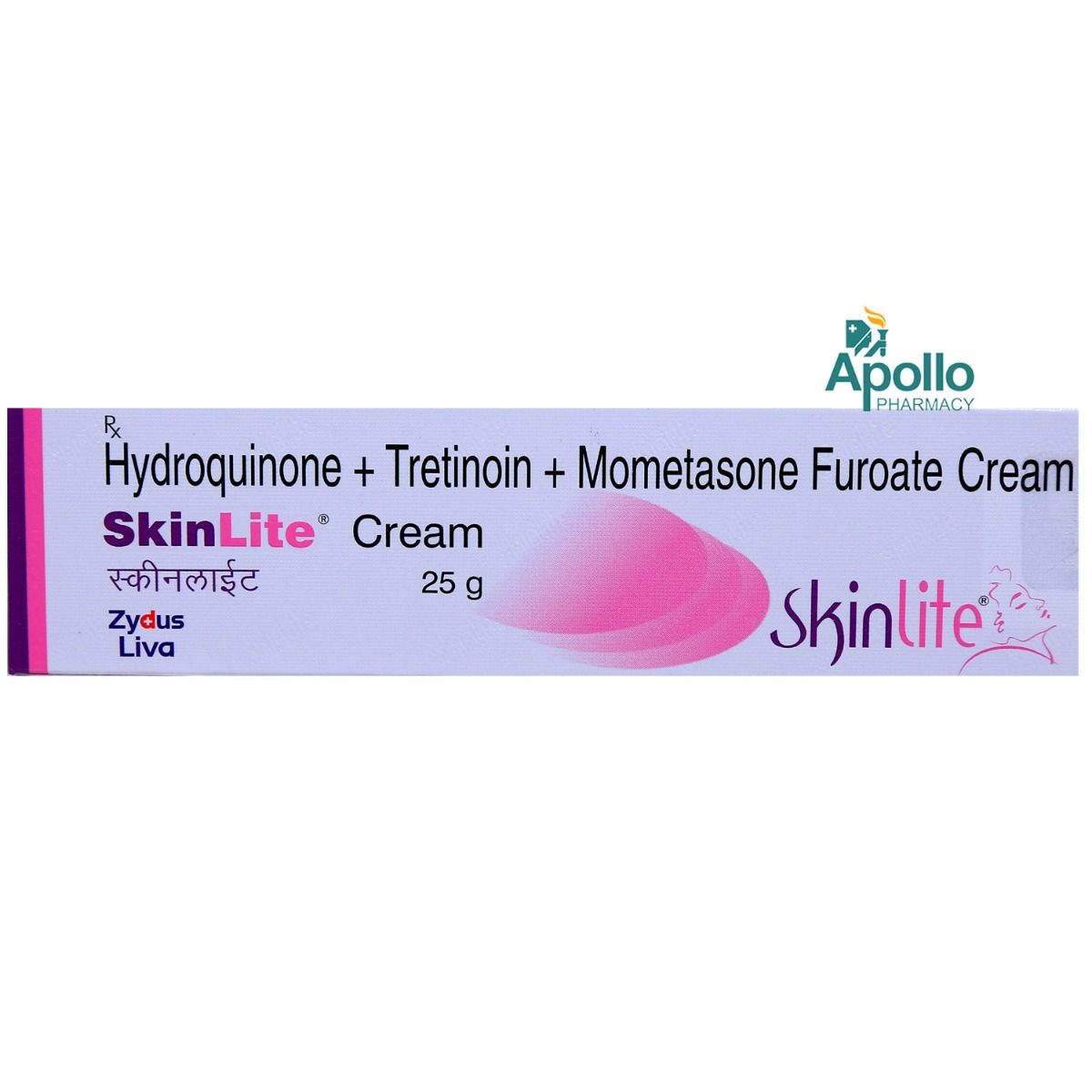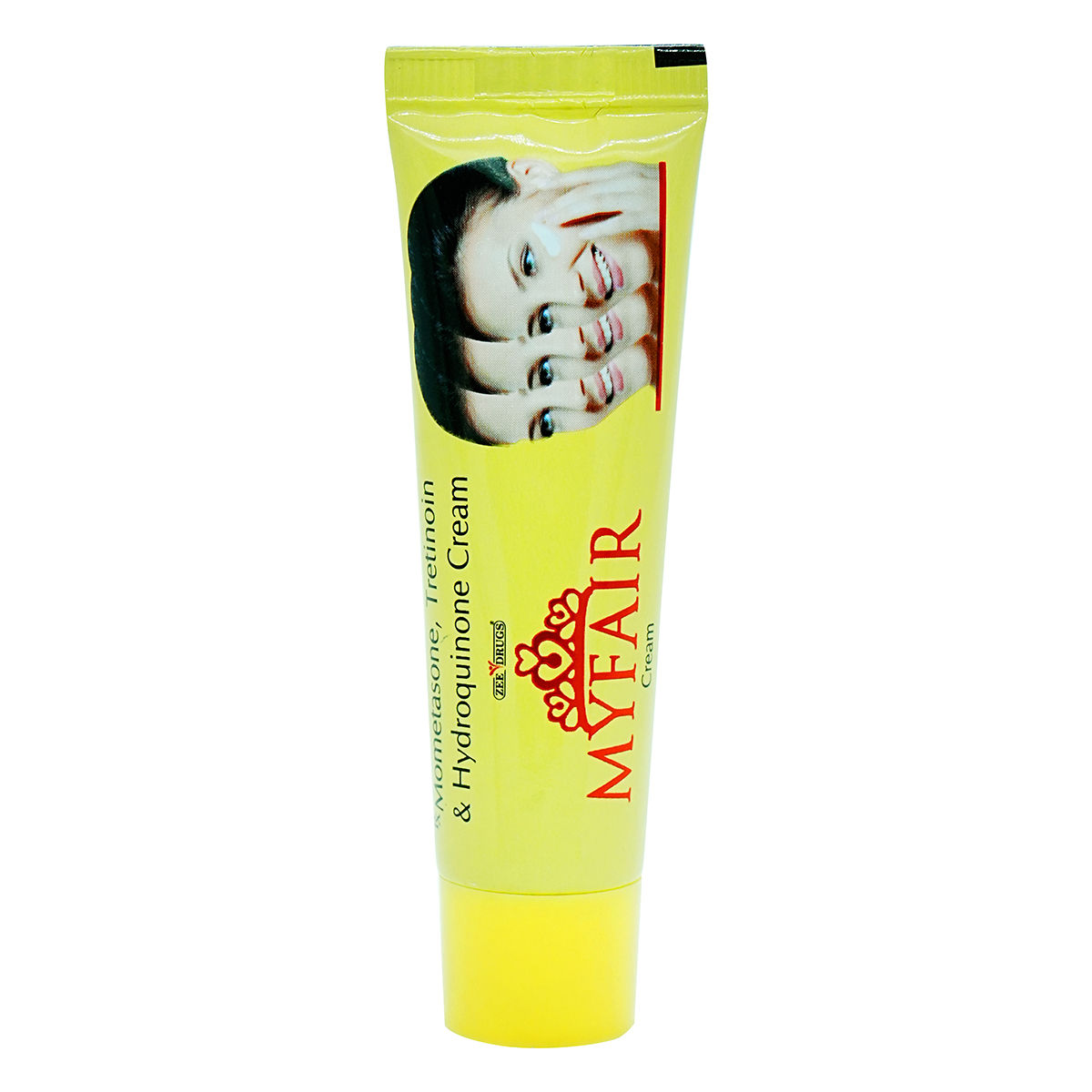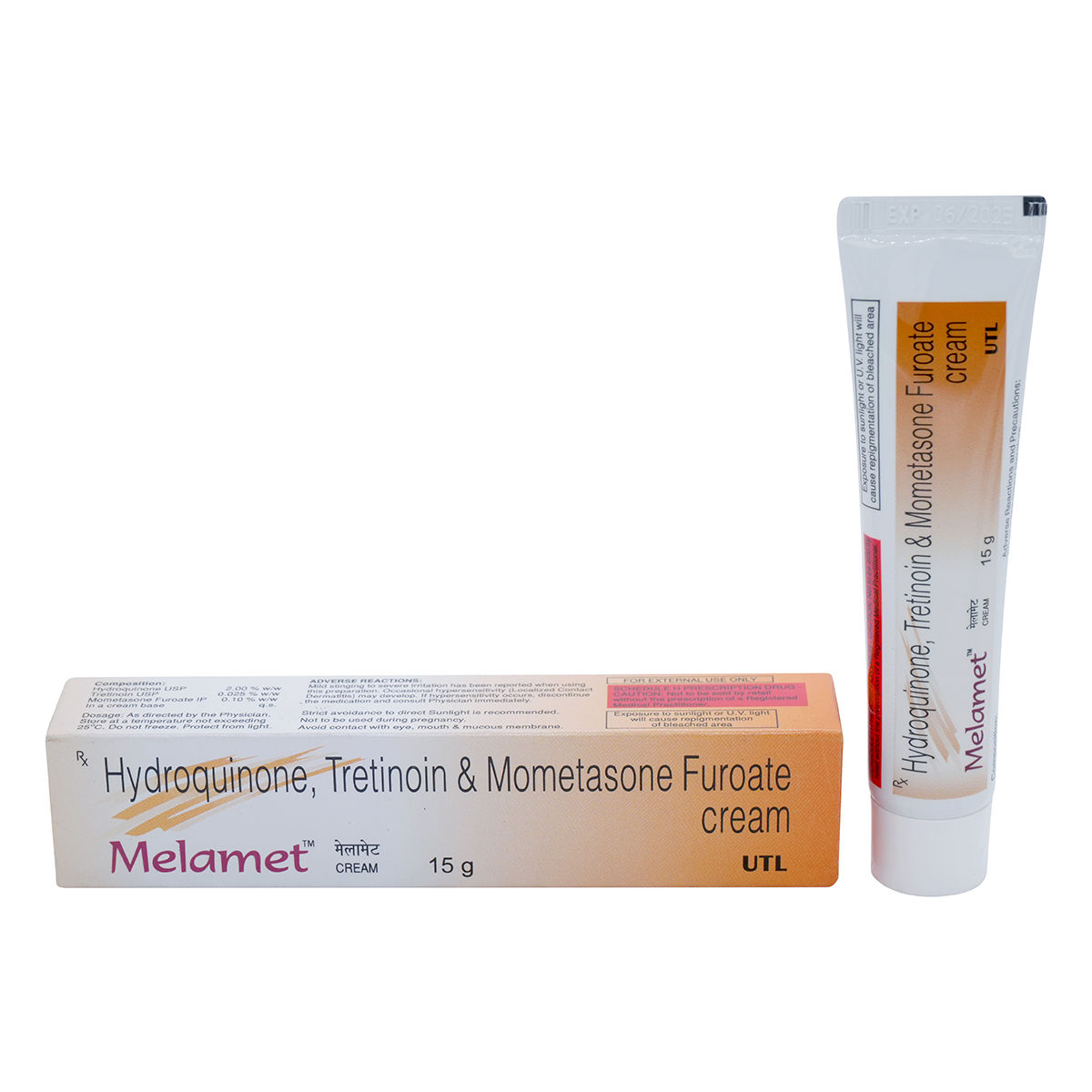Omela Cream 20 gm
Omela Cream is used to treat melasma (dark brown patch on skin). It works by decreasing the amount of melanin (a skin pigment) that is responsible for the darkening of the skin. Also, it works by acting inside skin cells and inhibiting the release of certain chemical messengers in the body that cause redness, itching, and swelling. It increases the renewal of skin cells, which helps in the natural exfoliation of the skin's outer layers. Some people may experience skin pain, acne, redness, irritation, burning, itching, or stinging sensation of the skin. Do not apply on cut, open wound, or burned skin area.
₹208.8*
MRP ₹232
10% off
₹197.2*
MRP ₹232
15% CB
₹34.8 cashback(15%)
Free Delivery
With Circle membership
(Inclusive of all Taxes)
This offer price is valid on orders above ₹800. Apply coupon PHARMA10/PHARMA18 (excluding restricted items)
Know Your Delivery Time
Provide Delivery Location

Available Offers
 Prescription drug
Prescription drugWhats That

Secure Payment

India's Most Trusted Pharmacy

Genuine Products
Manufacturer/Marketer :
Consume Type :
Return Policy :
Expires on or after :
About Omela Cream
Omela Cream is used to treat melasma (dark brown patch on skin). Melasma, also known as chloasma or mask of pregnancy, is a common skin condition that causes brown patches on the face. It is more common in women than in men. The discoloured (grey-brown) patches occur mostly on the forehead, chin, nose, and cheeks.
Omela Cream contains three medicines, namely: Hydroquinone (skin lightening or bleaching agent), Mometasone (corticosteroid), and Tretinoin (a form of Vitamin A or retinoids). Hydroquinone belongs to the class of skin-lightening agents that work by decreasing the amount of melanin (a skin pigment) that is responsible for the darkening of the skin. Mometasone belongs to the class of corticosteroids that work by acting inside skin cells and inhibiting the release of certain chemical messengers in the body that cause redness, itching, and swelling. Tretinoin belongs to the class of retinoids (man-made vitamin A) that works by increasing the renewal of skin cells, which helps in the natural exfoliation of the skin’s outer layers.
Omela Cream is only for external use. Use Omela Cream as prescribed. Avoid contact of Omela Cream with nose, mouth, eyes, ears, or vagina. Do not apply on a cut, open wound, or burned skin area. In case Omela Cream comes in contact with these areas accidentally, rinse with water thoroughly. Some people may experience skin pain, acne, redness, irritation, burning, itching, or stinging sensation of the skin. Most of these side effects of Omela Cream do not require medical attention and gradually resolve over time. However, if the side effects persist or worsen, please consult your doctor.
If you are allergic to Omela Cream or any other medicines, please tell your doctor. If you are pregnant, a nursing mother, or planning for pregnancy, it is advised to consult a doctor before using Omela Cream. Omela Cream is not recommended for children below 12 years of age. Do not apply Omela Cream on ulcerated skin or wounds. Avoid sun exposure while using Omela Cream as it may make the skin more sensitive to sunlight and cause sunburn. Wear protective clothing and use sunscreen while going out to protect your skin from sunburn. Do not cover or wrap the treated area with a bandage unless advised by your doctor. Avoid smoking or going near naked flames as the fabric (bedding, clothing, dressings) that is in contact with Omela Cream catches fire and burns easily. If you have a sulfite allergy, asthma, rosacea (redness and often red, small, pus-filled bumps on the face), acne, skin thinning, perioral dermatitis (redness and swelling of the skin around the mouth), genital itching, chickenpox, diabetes, cold sores, ulcerated skin, warts, shingles (a viral infection causing painful rash), eczema (itchy, swelling of the skin) or any other skin condition, inform your doctor before taking Omela Cream.
Uses of Omela Cream
Directions for Use
Medicinal Benefits
Omela Cream is a combination of three drugs: Hydroquinone, Mometasone, and Tretinoin. Hydroquinone belongs to the class of skin-lightening agents that work by decreasing the amount of melanin (a skin pigment) that is responsible for the darkening of the skin. Mometasone is a corticosteroid that acts inside skin cells and inhibits the release of certain chemical messengers in the body that cause redness, itching, and swelling. When the skin reacts to any allergens, such chemicals are released normally. Tretinoin belongs to the class of retinoids (man-made vitamin A) that works by increasing the renewal of skin cells, which helps in the natural exfoliation of the skin’s outer layers. Also, tretinoin loosens the cells on the skin’s surface and unblocks pores by reducing the production of oil in the skin. Thus, it decreases pimples, whiteheads, and blackheads.
How Omela Cream Works
Storage
Side Effects of Omela Cream
- Skin pain
- Acne
- Redness, irritation, burning, itching, or stinging sensation of the skin
What if I have taken an overdose of Omela Cream
Drug Warnings
If you are allergic to Omela Cream or any other medicines, please tell your doctor. If you are pregnant, a nursing mother, or planning for pregnancy, it is advised to consult a doctor before using Omela Cream. Omela Cream is not recommended for children below 12 years of age. Do not apply Omela Cream on ulcerated skin or wounds. Avoid sun exposure while using Omela Cream as it may make the skin more sensitive to sunlight and cause sunburn. Do not cover or wrap the treated area with a bandage unless advised by your doctor. Avoid smoking or going near naked flames as the fabric (bedding, clothing, dressings) that is in contact with Omela Cream catches fire and burns easily. If you have a sulfite allergy, asthma, rosacea (redness and often red, small, pus-filled bumps on the face), acne, skin thinning, perioral dermatitis (redness and swelling of the skin around the mouth), genital itching, chickenpox, diabetes, cold sores, ulcerated skin, warts, shingles (a viral infection causing painful rash), eczema (itchy, swelling of the skin) or any other skin condition, inform your doctor before taking Omela Cream.
Drug-Drug Interactions
Drug-Drug Interactions
Login/Sign Up
Drug-Food Interactions
Drug-Food Interactions
Login/Sign Up
Diet & Lifestyle Advise
- Avoid sun exposure while using Omela Cream as it may make the skin more sensitive to sunlight and cause sunburn. Wear protective clothing and use sunscreen while going out to protect your skin from sunburn.
- Regular exercise can improve your mood and self-esteem, though it doesn’t clear spots. Take a shower immediately after finishing the exercise.
- Wear a wide-brimmed hat to protect your face from sun exposure.
- Avoid using skin products that cause irritation, such as skin cleansers or shampoos, harsh soaps, hair removers or waxes, hair colours or permanent chemicals, and skin products with astringents, lime, spices, or alcohol.
Habit Forming
Therapeutic Class
Omela Cream Substitute

SkinLite Cream 25 gm
by AYUR
₹10.26per tabletMelacare Cream 25 gm
by AYUR
₹9.32per tabletHHLite Cream 20 gm
₹10.80per tabletSkinshine Cream 30 gm
₹8.67per tabletSkinshine Cream 15 gm
₹8.97per tablet
Product Substitutes
Alcohol
Caution
The interaction of alcohol with Omela Cream is unknown. Please consult a doctor before consuming alcohol while using Omela Cream.
Pregnancy
Caution
The safety of Omela Cream in pregnant women is unknown and is given to a pregnant woman only if the doctor thinks the benefits outweigh the risks.
Breast Feeding
Caution
It is unknown whether Omela Cream is excreted in human milk. Please consult a doctor before using Omela Cream while breastfeeding.
Driving
Safe if prescribed
Omela Cream usually does not affect your ability to drive or operate machinery.
Liver
Caution
If you have any concerns regarding the use of Omela Cream in patients with liver problems, please consult a doctor.
Kidney
Caution
If you have any concerns regarding the use of Omela Cream in patients with kidney problems, please consult a doctor.
Children
Unsafe
Omela Cream is not recommended for children under 12 years of age, as its safety and effectiveness have not been established.
FAQs
Country of origin
Manufacturer/Marketer address
Disclaimer
Author Details
We provide you with authentic, trustworthy and relevant information

























